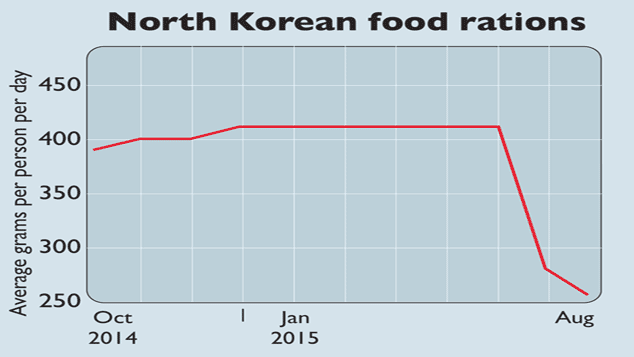
North Korea’s leader Kim Jong Un has introduced agricultural reforms, which, among other things, allow farmers to keep up to 70% of their produce rather than handing it over to the state. This has boosted productivity and is aimed at expanding the “market dynamics in this supposedly planned economy”, says Simon Mundy in the Financial Times. The dictator wants to avert the kind of famine that ravaged the country in the mid-1990s as a result of under-investment in food production and the withdrawal of Soviet aid.
But 70% of the population still relies primarily on the government for food, according to the UN’s Food and Agriculture Organisation. And after this summer’s bad harvest – caused by severe drought followed by flooding – the state’s ration per person has plummeted from 410 grammes per day to only 250 grammes. That’s less than half the portion needed for basic nutrition in a country where more than 25% of children under five are malnourished.